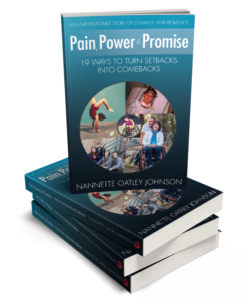
Dear Friends,
Last month in Nehemiah chapter 4, the tension escalated to the point where the enemies of God were plotting to assassinate the Jews and put an end to their work (4:11-12). Nehemiah’s people had to continue the sacred work of rebuilding the temple, carrying a trowel in the one hand and a weapon in the other (vs 16-17).
How is this metaphor relevant today in our own lives?
Through wisdom and smart strategizing, in Nehemiah 5, he and his crew managed to stave off the threats of attack but soon internal strife over money, land, property, taxes and food would divide the people. In Nehemiah 5, the clash is a class struggle between the workers and the officials, between the laborers and overseers working on the project, between the working class and the priviliged class.
Ever involved in a family conflict over money, property, taxes or food?
The work had to stop because of strife among God’s people. Nehemiah had a problem and he had to deal with it head on. Their was a great outcry from the working class, “Hey, we need food to live. We have mortgaged our properties so we can eat, due to the famine. (the famine had caused the cost of food to escalate). We have borrowed against our lands to pay our taxes. (the rich were taking advantage of the crisis to make money off the poor, charging 12% interest a year). We are having to give our children as slaves to the rich to pay off our debts.”
Have you ever not had enough money for food? Had to mortgage your property to eat? Borrowed against your land to pay your taxes? Charged a family member interest on a loan? Given over your children to be slaves to your lenders to pay off your debt?
When Nehemiah heard their outcry, he was FURIOUS by the greed of those who wanted to make a profit from the money troubles of others, something the Law of Moses clearly said was wrong. Nehemiah had to get this issue resolved among the people, so he called together an assembly of the nobles and the rulers. “What you are doing is not good. Each of you is exacting usury (an excessive or illegally high rate of interest charged on borrowed money) from your brother.” Then he went on to say, and I’m paraphrasing, Listen, we know the pain of slavery and the cost to redeem someone out of it. Our enemies did this to us. Why would we inflict this on our own people? Should we not walk in the fear of God and stop this nonsense? Then in Nehemiah’s own words, “Please, let us stop this usury! Restore now to them, even this day, their lands, their vineyards, their olive groves, and their houses, also a hundredth (1 cent is a hundredth of 1 dollar) of the money and the grain, the new wine and the oil, that you have charged them.”
When was the last time you had to check your anger and seek God’s wisdom? When did you take the time to STOP the work of your hands to settle a dispute among those closest to you? When did you have to engage in a righteous rebuke, speaking the truth in love, for the sake of all?
The nobles and rulers heard the truth and did the right thing. “So they said, “We will restore it, and will require nothing from them; we will do as you say.” Then I called the priests, and required an oath from them that they would do according to this promise. Then I shook out the fold of my garment and said, “So may God shake out each man from his house, and from his property, who does not perform this promise. Even thus may he be shaken out and emptied.” And all the assembly said, “Amen!” and praised the LORD. Then the people did according to this promise. ” (vs. 12-13)
When is the last time you did the right thing and admitted you were wrong? Do you have a teachable spirit even when it comes to money? Has there ever been a time where you gave money back to someone you had financially taken advantage of; even though at the time you thought you were in the right?
The entire 12 years Nehemiah was governor of Judah, he did not tax the people and did not take when he could have; he also gave when he didn’t have to. He received a lot of food from the king’s provisions, which he could have sold for his own profit. Instead, he gave them away to be the example of generosity – feeding as many as 150 people regularly. He could have taken more but he set an example by what he did not take and by what he did not keep because the bondage was heavy on his people: Nehemiah, in his own life, lived the way he told the nobles and rulers to live – to not take personal advantage of another’s need.
It’s a beautiful thing to see the working class and the priviliged class come together under superb leadership and resolve their issues. A courageous someone had to stand up and rebuke the priviliged class and tell them their behavior was wrong and not in compliance with God’s law. And those with a humble, teachable spirit, admitted their error and promised to do what was right. All the way around, this was a good day for Nehemiah and the Jewish people. I hope we too can remember the courage and the humility from this story and apply it to our own lives when needed.




0 Comments